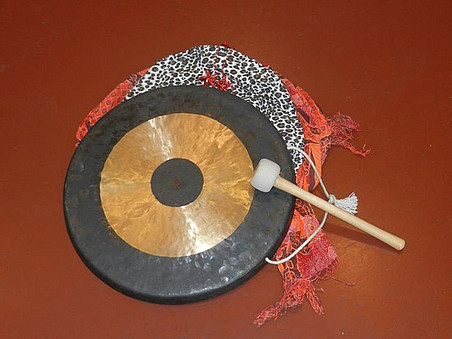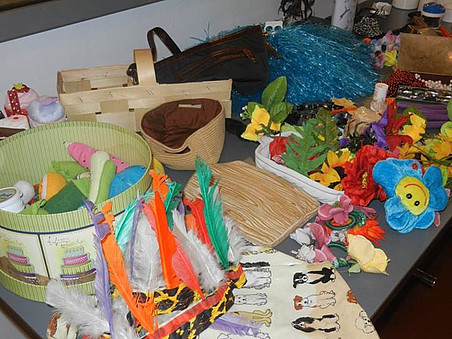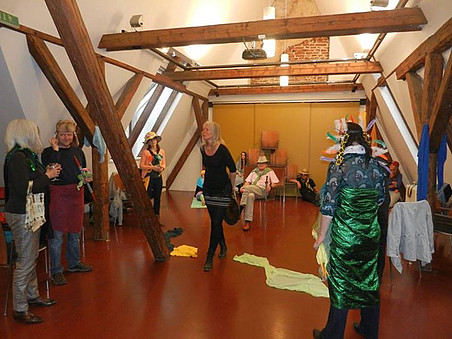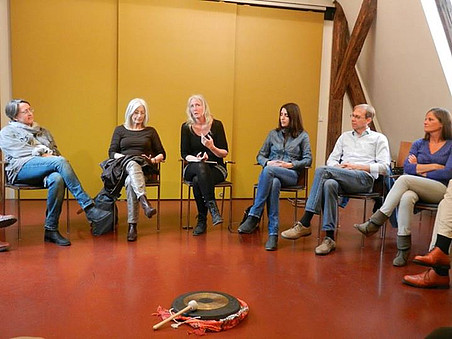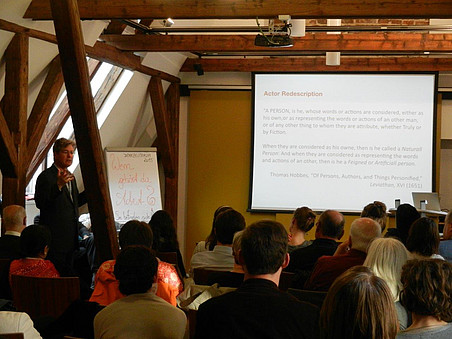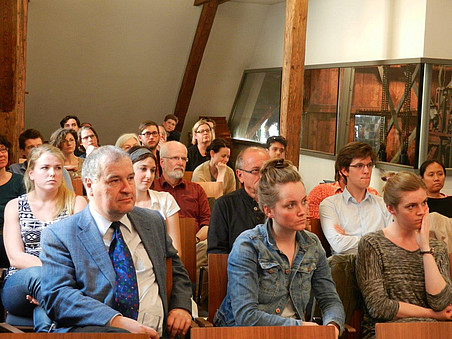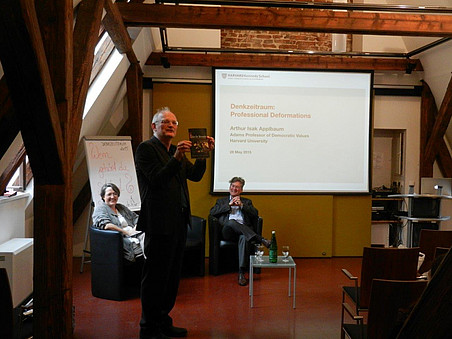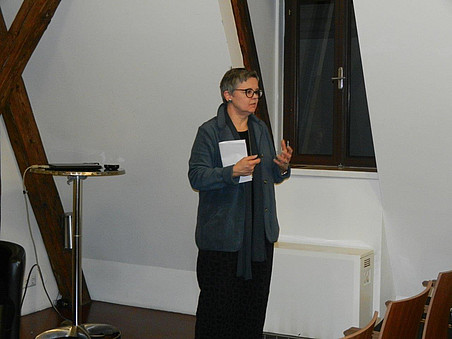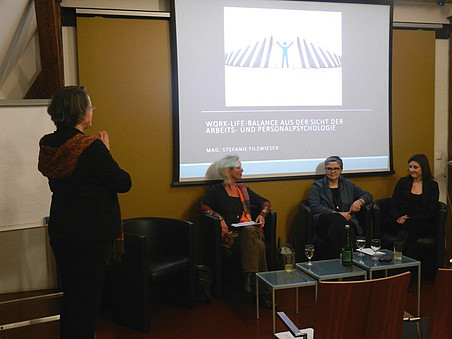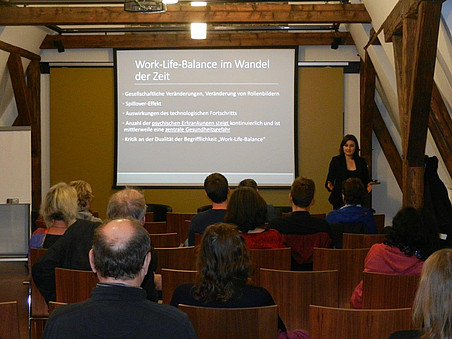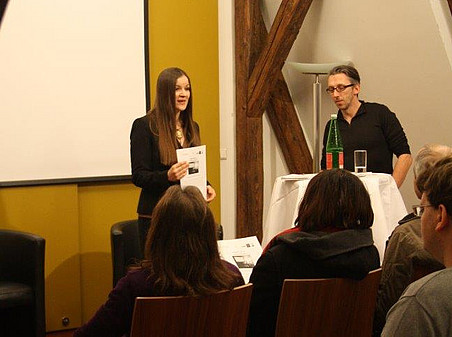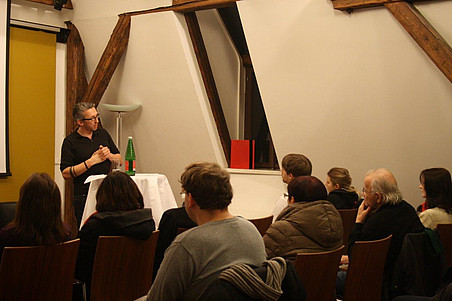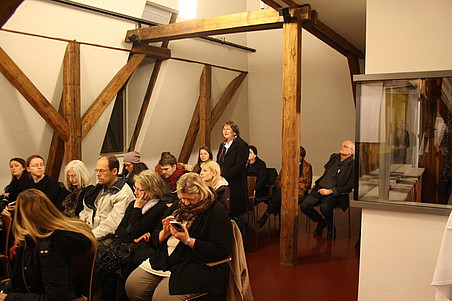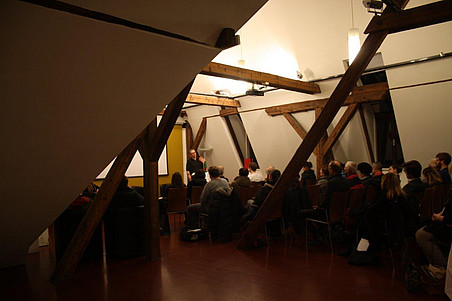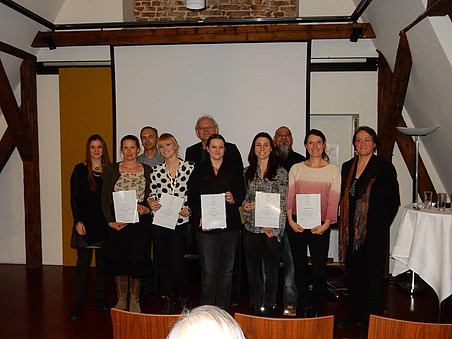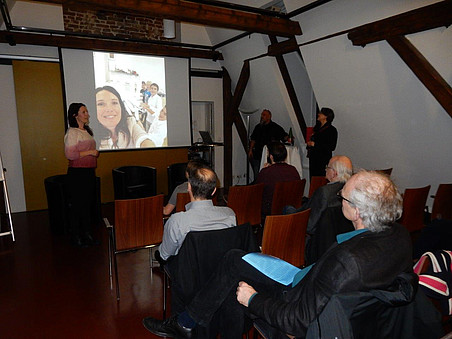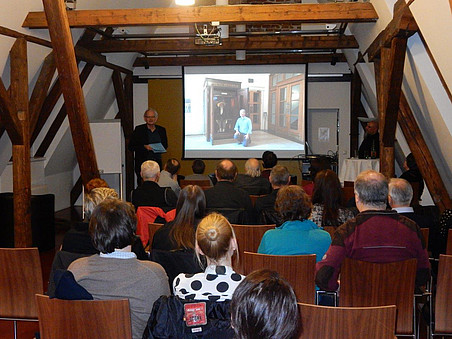Who owns the work?
Demkzeitraum 2015-16
Denkzeitraum on "Happiness and work" (23 April 2015)
Happiness and work - a contradiction? Can work make you happy at all? Do you have to work for your happiness? Under the guidance of Karin Koch, we will engage in an expressive play based on inner experience on the subject of happiness and work.
Denkzeitraum on "Professional Deformations" (28 May 2015)
Is it professional to be happy (or unhappy) at work? What makes ethics professional ethics? With Arthur Applbaum, Professor of Philosophy at the Harvard Kennedy School, we will explore how practising a profession and taking on a role can narrow perspective and change character, and examine the conflicts (real or perceived) between professional ethics (role ethics) and general ethics.
Denkzeitraum on "Work, happiness and old age" (11 June 2015)
Does work make you happy? If so, why do so many people look forward to retirement? Are we happier when we are (still) young, or do we only think we are because we are characterised by a narrative of old age? We will discuss these and other questions together with Roberta Maierhofer (Centre for Inter-American Studies at the University of Graz), Eva Janusch (nowa Training - Beratung - Projektmanagement association), Barbara Ratzenböck (research associate in the OeNB project "Narrated Ageing in Urban and Rural Areas") and Johann Mehrl (Director Human Resources at Steiermärkische Sparkassen AG).
Book & film presentation for the Denkzeitraum "Who owns happiness?" (8 October 2015)
In the summer of 2014, various potlucks were held in public spaces in the city of Graz, where people ate together and reflected on happiness. We recorded some of the interviews and compiled them into a film. The result is an atmospheric, dense film in which Graz and its inhabitants play the leading role. The music for the film comes from I Love Milk, who also played live.
Denkzeitraum "Image of work in the Middle Ages and today" (12 November 2015)
What was meant by labour in the Middle Ages? What do we understand by labour today? Is only paid labour? Who pays whom? And how has our idea of work changed today? These questions were explored by specialists Andrea Komlosy (University of Vienna), Andrea Worm (Karl-Franzens-University Graz) and Harald Berger (Karl-Franzens-University Graz)
Denkzeitraum "Can work be fun? Happiness, work and hedonism" (26 November 2015)
Some people read books and get paid for it. Others have to earn money to have time to read. Is reading work if we get paid for it? What role does "fun" play in work? And what does "fun" or "pleasure" actually mean? We hope that our specialists Andreas Bachmann (Zurich) and Ulrich Noller (Cologne) were able to help answer these questions.
Denkzeitraum "The right balance. Discussion on the topic of work-life balance" (3 December 2015)
Why is it so difficult to find the right balance? Do we actually work too much or too little? Is there only work OR life? That sounds as if the two are mutually exclusive. We hoped that our specialists Renate Dworczak (Karl-Franzens-Universität Graz), Gundi Große (WDR Cologne) and Stefanie Filzwieser (Kunstuniversität Graz) would provide us with clarity on work-life balance.
Denkzeitraum "Work and unconditional income" (10 December 2015)
In times of rapid change in the world of work, an unconditional basic income could secure a livelihood without the need to work. Is this idea social romanticism or a realistic vision of the future? Peter Heintel (University of Klagenfurt) and Richard Sturn (Karl-Franzens-University Graz) presented their ideas as part of the Denkzeitraum.
Denkzeitraum "A happy life without work?" (21 January 2016)
There have always been people who refuse to work, sometimes more, sometimes less. This resistance is usually directed less against the work itself than against the form, because the real problem lies in the social conditions under which the work has to be done. We discussed this with Leo Kühberger (journalist, activist and researcher) and recalled ancient models in which work had to be done before reflection could begin.
Denkzeitraum "Workplace selfies" (28 January 2016)
What makes your workplace special? What distinguishes your workplace from other workplaces? What role does your workplace play in the performance of your work? What makes you happy at your workplace and why? This was the question we asked as part of the participatory workplace selfie competition. From the numerous submissions, our expert jury (Helga Droschl, Sandro Droschl, Sabine Flach, Roman Klug, Lukas Meyer, Barbara Reiter and Robert Sommerauer) selected ten that we would like to present to you. At the same time, we invite you to join us for a discussion about selfies, happiness and work at the end of the thinking spaces on the subject of work.
